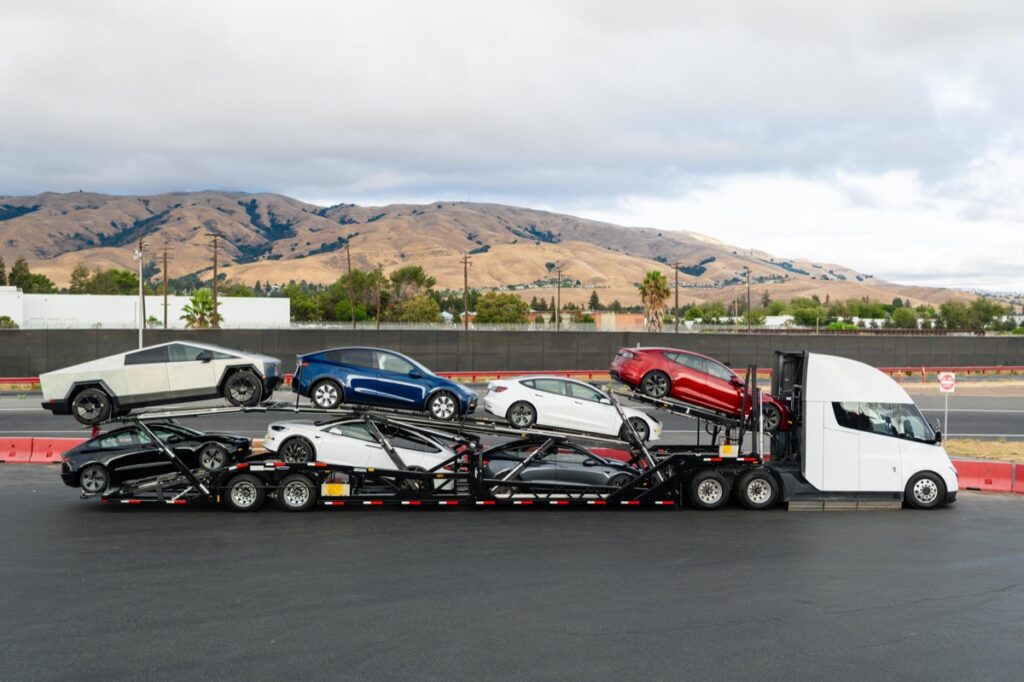
Tesla Prices Now Rival the Average New Car in the U.S.
Tesla’s aggressive pricing strategy has positioned the electric vehicle (EV) maker to compete directly with the average selling price of new cars in the United States.
While traditional automakers like General Motors, Ford, and Volkswagen have struggled to catch up in the EV market, Tesla has expanded its production and market share, further distancing itself from competitors, according to an analysis by Bloomberg.
Tesla began the year with significant price cuts that have reset customer expectations across the auto industry. As of October 1, Tesla introduced a new Model Y variant priced $4,000 below the average selling price of a new vehicle in the U.S.
Despite these price reductions, the Model Y is expected to be the best-selling car globally in 2023, with higher profit margins than most gasoline vehicles.
But on the same day the Bloomberg story was published yesterday, Tesla on late Thursday reduced prices of most Model 3 and Model Y trims to new lows in the United States, again, a move seemingly made to push Q4 demand skyrocketing.
Ford attempted to respond with dramatic price cuts of its own, slashing up to $10,000 off the F-150 Lightning. However, the company had to scale back its EV production targets and expects to lose about $4.5 billion on EVs this year, according to CEO Jim Farley.
General Motors also faces challenges, including delays in battery manufacturing that have affected the availability of its new electric Chevy models.
Tesla’s dominance in the U.S. EV market is evident, accounting for 61% of all fully electric cars ever sold in the country. This market share is more significant than Apple’s in the smartphone industry. Traditional automakers have been unable to match Tesla’s pace, both in terms of production and price competitiveness.
The only company that comes close to competing with Tesla on a global scale is China’s BYD, which transitioned successfully from gas-powered to electric vehicles. BYD’s focus on EVs has allowed it to dethrone Volkswagen as the best-selling car brand in China and come close to Tesla’s global EV deliveries.
Tesla’s forthcoming Cybertruck could further disrupt the auto industry, particularly the lucrative pickup truck market dominated by Ford, GM, and Stellantis. Despite delays, the electric pickup is highly anticipated, with 37% of 3,500 surveyed Tesla owners considering a Cybertruck for their next vehicle purchase.
As Tesla continues to lead in EV adoption and pricing, traditional automakers face an uphill battle in regaining market share. The gap between Tesla and its competitors shows no signs of closing, challenging the industry’s long-standing hierarchy.







Tesla is Nokia..ing the entire auto industry! BYD makes about 1/8 of the profits that Tesla does, so they might be high in actual sales, but they still haven’t translated that into great revenues (compared to Tesla) and they have a long way to go to be truly global as Europe hasn’t taken to them so far and the US is totally barren territory except for some EV buses etc. This is Tesla’s decade even if somehow they get “overtaken” by BYD, Tesla’s goal is to speed the transition to renewables and that means lots of EVs, so welcome aboard BYD.